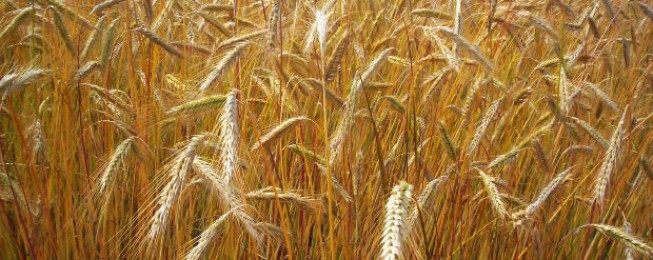 Something stirring down on the farm
Something stirring down on the farm
Matthew Lockwood, IGov Team, 18th March 2013
About Matthew: http://geography.exeter.ac.uk/staff/index.php?web_id=Matthew_Lockwood
Twitter: https://twitter.com/climatepolitics
Out of sight of the mass of people living in towns and cities, a quiet revolution is underway in the British countryside as more and more farmers are investing in renewable energy. According to the National Farmers Union, one in five of its members had produced clean electricity from solar or wind by the end of 2012. Between 2011 and 2012 there was a 28% increase in the number of biogas plants, capable of providing both renewable electricity and heat from farm waste.
This is from a very low base. As yet, the scale of on-farm renewables in Britain is tiny compared with Europe’s leader, Germany. By the end of 2010, German farmers owned over 10% of the country’s renewable energy capacity, equivalent to over 5,700 MW. Compared with the UK’s 78 biogas anaerobic digesters, there were 6,000 digesters in Germany by 2010, with plans to double capacity by 2020. But the German example just shows the potential that could be realised here.
Why does this matter? Partly because of the contribution on-farm renewables can make to a future energy system that is less centralised and more distributed. At the same time, many renewable technologies are extensive, requiring a lot of space, which farmland can provide. But more importantly, as the NFU points out, the income from feed-in tariffs can provide a lifeline for farmers struggling with poor harvests in bad weather. In the longer term, farmers’ investment gives them a stake in the future energy system, providing an important political underpinning to policies to expand renewable energy from a perhaps unexpected source. In Germany, otherwise conservative-minded farmers and small business owners have been key supporters of the decision to accelerate the expansion of renewable energy following the closure of nuclear power after Fukushima (the so-called Energiewende) and counter-balance hostility to renewables within the Christian Democratic Party. Allies such as these are essential for the political sustainability of renewables; it cannot rely just on the enthusiasm of the environmentally minded. More broadly, as I argue in a recent IGov working paper, the durability of climate policy depends on its ability to build its own political constituency and momentum.
Farmers may be a relatively small number of people, but they are symbolically important. An indication of how this works can be seen in the fact that farmers get planning permission for their small and medium sized wind turbines much more frequently than large projects backed by big energy companies or developers, with 85-95% getting through. Opposition, especially from second home owners, seemingly has less traction in the face of better livelihoods for farming families who may have been farming locally for generations.
Just as in Germany, the growth of renewable energy on Britain’s farms has been fuelled by the introduction of feed-in tariffs for solar PV, wind and electricity generation from biogas. Really efficient use of biogas produces both electricity and heat, and the Renewable Heat Incentive now provides extra support for biogas. Nevertheless, support could be higher – the NFU, the Renewable Energy Association and the Country Land and Business Association jointly argued in 2011 that feed-in tariffs for biogas were not high enough. Certainly, the German experience with FiTs has been that initially high tariff levels create demand that allows economies of scale and learning quite quickly, meaning that subsidies can also be brought down relatively fast.
On-farm renewables are a great opportunity to democratise renewable energy and politically underpin future expansion; it would be cold comfort if this opportunity were to be wasted through skimping on support and failing to kickstart investment.
Related Posts
« Previous New Thinking Blog: The New Energy System is Winning the Fight for the Future Guest Blog: Time to learn some nuclear lessons Next »







